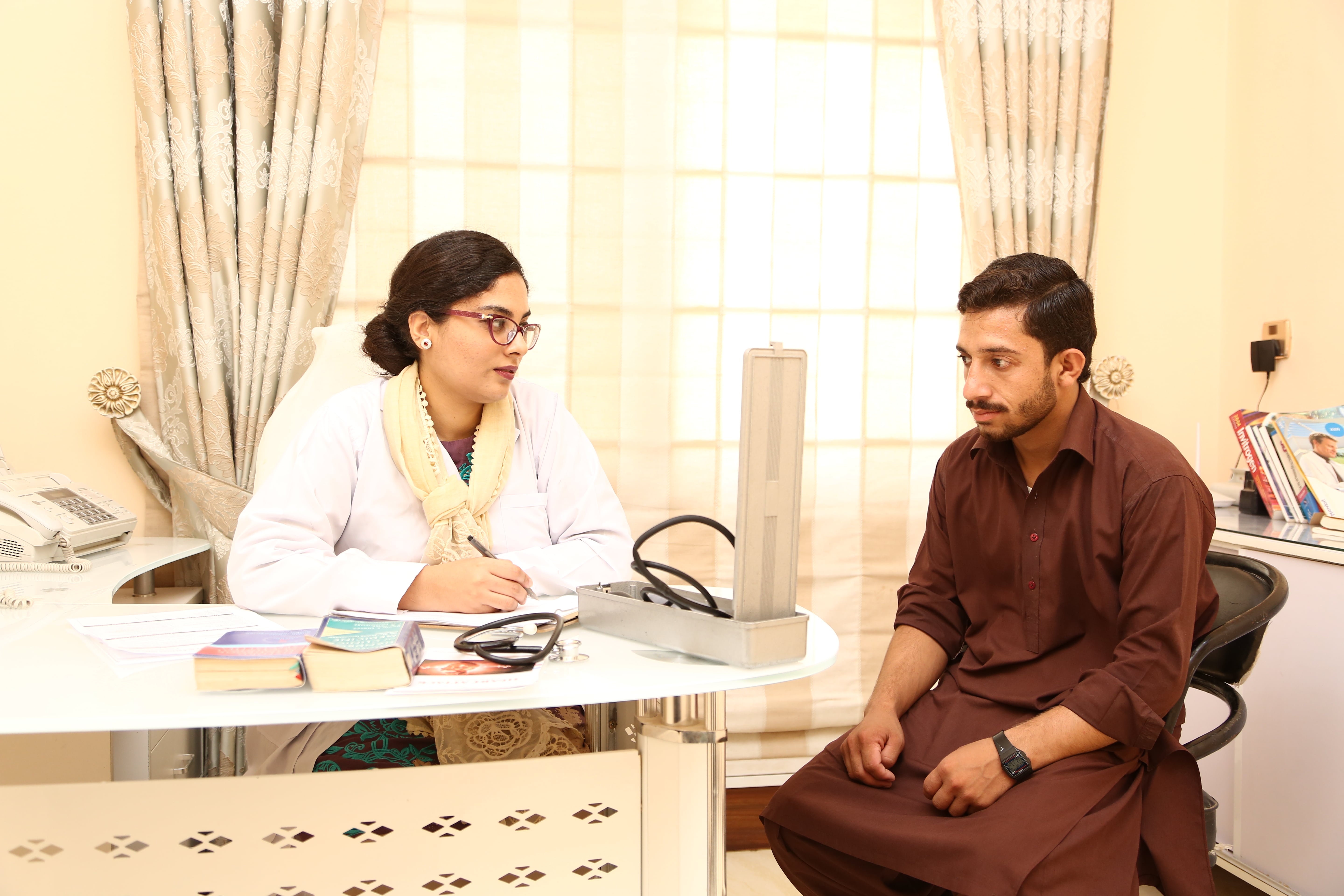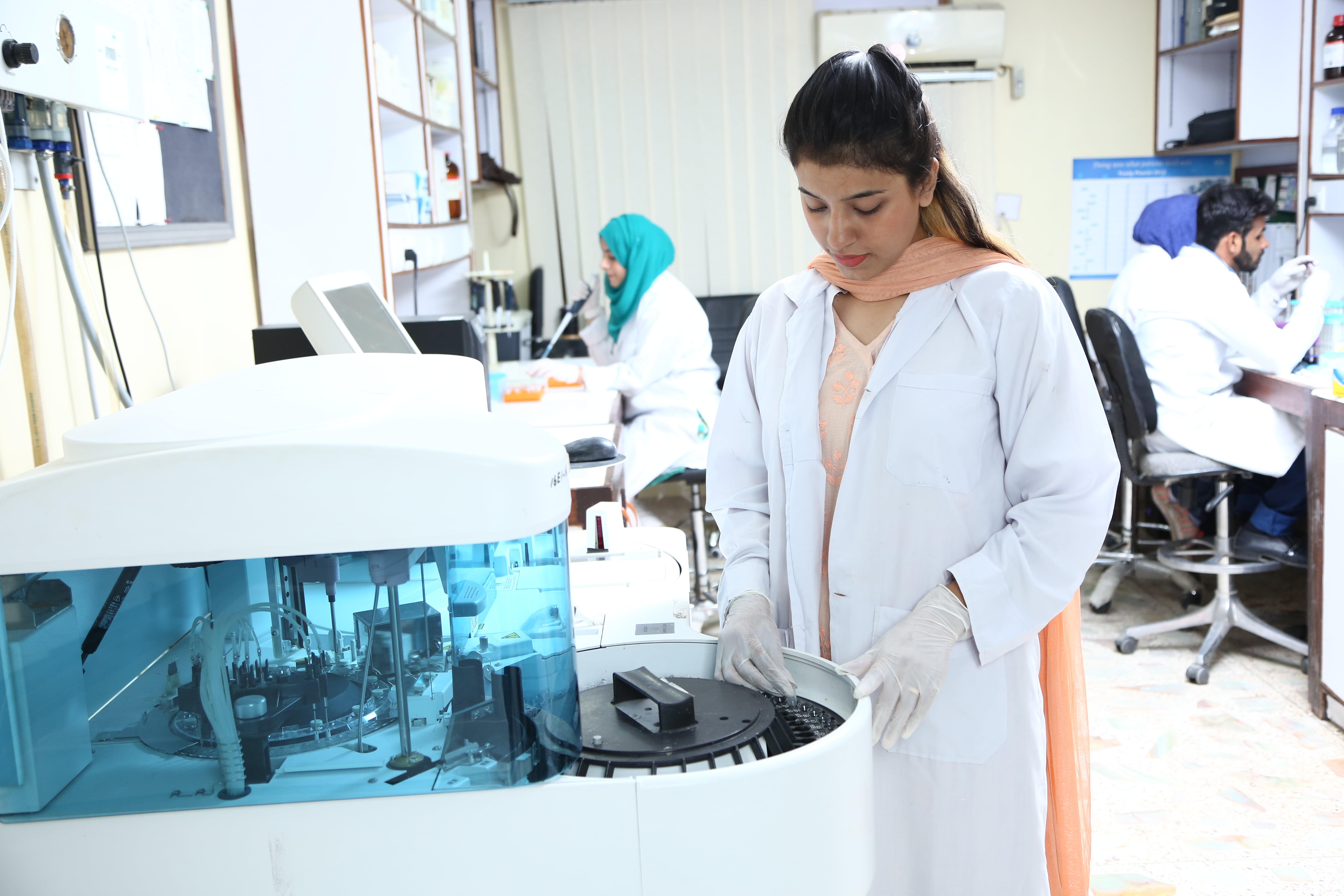Non-Communicable Diseases such as type-2 diabetes, heart attacks, obesity, heart failure, stroke and chronic kidney disease are the leading causes of death and disability globally. The burden on health due to these disorders is increasing particularly among the 1.5 billion people in South Asia. The Center for Non-Communicable Diseases is an independent research institute in Pakistan that aims to understand in detail the lifestyle, blood-based and genetic risk factors that lead to these disorders. We are also focusing on risk factors that are associated with longitudinal complications associated with these disorders. Improved recognition of such etiological factors associated with both the development and progression of such chronic diseases will permit the development of interventions to reduce the burden of these disorders in an effective manner.
CNCD has already established a bioresource involving 150,000 participants from Pakistan on whom information on lifestyle habits, medical and medication history, family history of diseases, consanguinity, exposure to tobacco consumption, physical activity, dietary habits, anthropometry, basic blood biochemistry and ECG traits have been recorded. We have also collected DNA, serum, plasma, and whole-blood in all of our study participants. In a subset, we have also collected urine samples, fecal material, and RNA from blood cells and other relevant tissue types. Our aim is to investigate these complex disorders through a multi-omics approach by integrating clinical epidemiology, genomics, proteomics, expression studies, metabolomics, and study of microbiome. We are also particularly leveraging high levels of consanguinity in Pakistan to identify and phenotype “Human Knockouts” to understand the underlying biology of a wide variety of genes and help inform medicine development programs through evaluation of participants in whom loss of function mutations have led to natural inhibition of genes.
To help achieve our aim, CNCD has employed more than 80 full time physicians, nurses, laboratory associates and other field staff who are actively expanding this bioresource to involve more than 300,000 participants in the next few years. In-addition to cross-sectionally examine these chronic diseases, our team is also prospectively following up participants to record incident events.



Through collaboration with various international partners, we have conducted a wide variety of detailed genetic investigations, including genome-wide association studies (GWAS), metabochip, exome-chip, whole-exome sequencing and whole-genome sequencing which have enabled to evaluate millions of genetic markers across the genome. These large scale genetic studies have already provided unique insights about the genetic architecture of South Asians and have unraveled novel genes associated with heart attacks, diabetes, high blood pressure and other traits. We are now currently expanding our whole-exome sequencing studies to > 120,000 participants and whole-genome sequencing studies to > 10,000 participants.
Three-quarters of human genes have no known associated phenotype. Studying humans knocked out for a gene is an innovative way to understand biology; however such individuals are very rare. To identify human knockouts, we are leveraging high levels of consanguinity in Pakistan. Using whole-exome sequencing (WES) in 10,500 participants, we have already identified 1843 human knockouts for 1317 genes. Every fifth participant in this resource has been found to be a knockout. We are therefore expanding whole-exome and whole-genome sequencing studies to > 100,000 participants. This program has already identified knockouts for genes that were thought to be essential through studies in mice. We are also characterizing novel phenotypic associations and identifying novel biology through provoked physiological studies in knockouts and individuals who are haploinsufficient.
Over the last decade, CNCD has designed, optimized and validated instruments and questionnaires that are tailored to the Pakistani population. We are hence able to reliably record information on personal and medical history, family history, medical and medication history, consanguinity or marriages among relatives, tobacco consumption, physical activity, anthropometry, socio-economic status, depression, anxiety levels and dietary habits. Our team of dedicated physicians, who exclusively work for our research projects, have been trained to record and document this information from our study participants. Also, they are trained to conduct specific clinical investigations relevant to different ongoing studies (e.g., digitally archiving CT-scans, ankle-brachial index measurements, carotid intimal media thickness measurements, ECG traits).
On all of our study participants, we record information on major lipids, glucose, creatinine, HbA1c, liver function tests and urinary albumin. Additionally, we have analyzed more than 200 biomarkers in a large number of study participants. Moreover, we have also employed approaches such as lipidomics and metabolomics to conduct hypothesis-free biomarker studies as well. Such approaches are continuing to provide important insights about gene function and disease etiology.